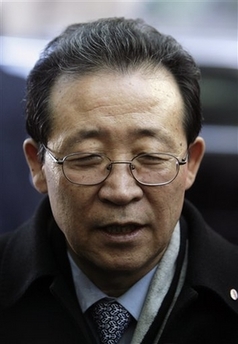Asia-Pacific
US, N.Korea optimistic after talks
(AP)
Updated: 2007-03-07 15:50
 |
Large Medium Small |
NEW YORK - The United States and North Korea wrapped up historic talks on establishing diplomatic ties on an optimistic note TuesdayThe United States and North Korea wrapped up historic talks on establishing diplomatic ties on an optimistic note Tuesday but the US wants Pyongyang to "come clean" about any uranium enrichment program and eliminate all nuclear weapons before normalizing relations.
His North Korean counterpart, Vice Foreign Minister Kim Kye Gwan, was also upbeat, telling reporters "the atmosphere was very good, constructive and serious."
Under a Feb. 13 agreement reached at six-nation talks in Beijing, North Korea must shut down its main nuclear reactor and allow UN inspectors back into the country within 60 days. In return, the North would receive aid equal to 50,000 tons of heavy fuel oil from the other countries in the talks - the United States, South Korea, Russia, China and Japan.
Hill said "there was a sense of optimism on both sides that we will get through this 60-day period and we will achieve all of our objectives."
The Feb. 13 timetable is the first step toward implementing a September 2005 agreement in which North Korea agreed to abandon its nuclear programs in exchange for energy aid and security guarantees.
Hill said he was encouraged by Kim's willingness to look ahead to the next stage, which calls for the country's plutonium-producing reactor to be disabled and then dismantled - and for North Korea to make a full disclosure of its entire nuclear program.
Experts estimate North Korea's reactor at Yongbyon, north of the capital, has produced about 110 pounds of plutonium, that "we have reason to believe has been weaponized," Hill said.
US Deputy Secretary of State John Negroponte said Washington also has "no doubt" that North Korea has a uranium enrichment program, an allegation that brought on the nuclear crisis with the North in 2002. Pyongyang has never publicly acknowledged having such a program.
Hill said North Korea spent a lot of money buying centrifuges, manuals, aluminum tubes and other equipment for what appears to be a Pakistani-designed program to enrich uranium, and "they need to come clean on it" and ultimately abandon it.
He told a news conference he "made the point forcefully today" that North Korea cannot denuclearize if highly enriched uranium - which can be used to produce nuclear weapons - "is still out there."
Hill said he and Kim agreed to resolve the matter before North Korea makes its final nuclear declaration and decided that US and North Korean experts will meet in order "to get to the bottom of this matter."
The primary focus of the first meeting of the US-North Korea Working Group, one of five established under the Feb. 13 agreement, was steps toward establishing diplomatic relations.
Hill said Washington looks forward not only to eventual normalization of relations but to creating peace on the Korean peninsula and ensuring security in northeast Asia.
The United States has never had diplomatic relations with North Korea, which was created after World War II.
In Tuesday's talks, Hill said one issue that was discussed was North Korea's desire to get off the US list of state sponsors of terrorism. Another issue was North Korea's desire to get off the list of countries subject to the US Trading with the Enemy Act, which would open the way for a normal trading relationship with the US for the first time.
| 分享按鈕 |

